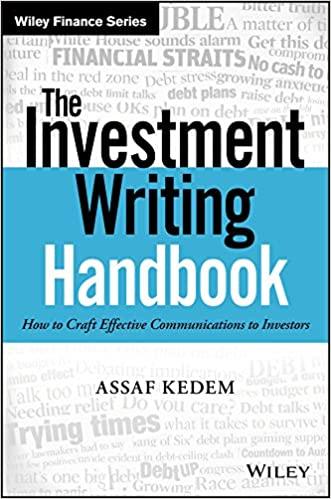Question
Adam has just graduated, and has a good job at a decent starting salary. He hopes to purchase his first new car. The car that
Adam has just graduated, and has a good job at a decent starting salary. He hopes to purchase his first new car. The car that Adam is considering costs $39,000. The dealer has given him three payment options:
1. Zero percent financing. Make a $2,500 down payment from his savings and finance the remainder with a 0% APR loan for 48 months. Adam has more than enough cash for the down payment, thanks to generous graduation gifts.
2. Rebate with no money down. Receive a $3,400 rebate from the car dealer and finance the rest with a standard 48-month loan, with an 5% APR. He likes this option, as he could think of many other uses for the $2,500 of his saving.
3. Pay cash. Get the $3,400 rebate and pay the rest with cash. While Adam doesnt have $39,000, he wants to evaluate this option. His parents always paid cash when they bought a family car; Adam wonders if this really was a good idea.
1. What are the cash flows associated with each of Adams three car financing options?
2. Suppose that, similar to his parents, Adam had plenty of cash in the bank so that he could easily afford to pay cash for the car without running into debt now or in the foreseeable future. If his cash earns interest at a 5.4% APR (based on monthly compounding) at the bank, what would be his best purchase option for the car?
Step by Step Solution
There are 3 Steps involved in it
Step: 1

Get Instant Access to Expert-Tailored Solutions
See step-by-step solutions with expert insights and AI powered tools for academic success
Step: 2

Step: 3

Ace Your Homework with AI
Get the answers you need in no time with our AI-driven, step-by-step assistance
Get Started


